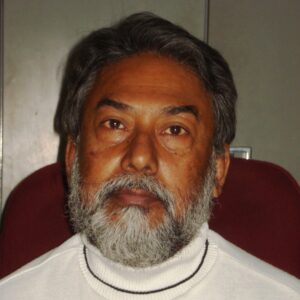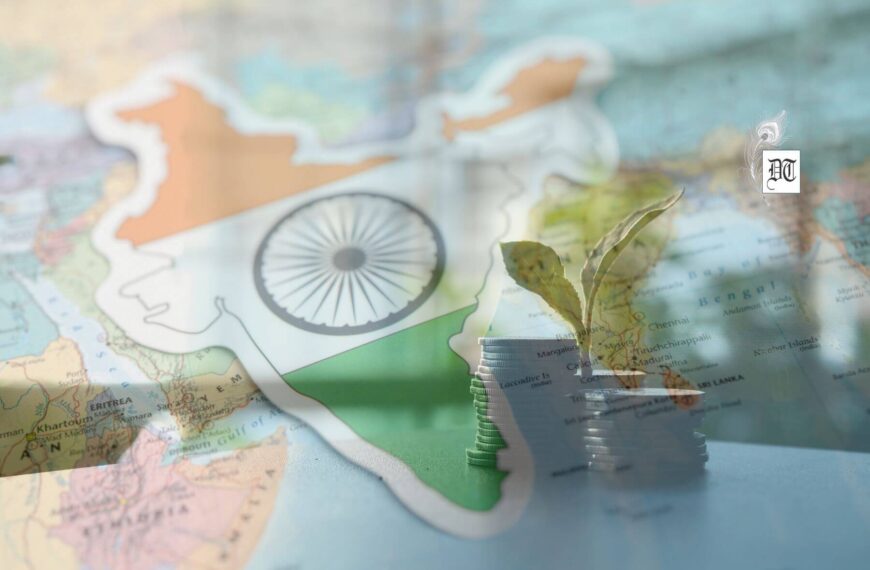It might seem unusual that people in Uttar Pradesh prefer silence. They are not vocal in their protests. Prof. Bhaskar finds out the reasons for this silence, a clear choice, by various sections of the society in the state. He tells us how silence suits different sections of the social pyramid. He turns his gaze on the goldmine in the social science research institute. He talks about a recent seminar on nationalism and identity. Here’s his weekly column, exclusively in Different Truths.
Silence is eloquence. Silence tells more than what speech ever could. In the spiritual domain, silence helps detoxification of the mind and the body. This is freeing the individual from evils in the rest of the world. Beyond spiritual domain, silence has a social connotation also. There is natural silence and there is unnatural silence in society. Silence is natural for the privileged to maintain status quo. Silence is unnatural for the people at the bottom of the social pyramid. The question is, why the unnatural remains natural for decades, if not for centuries? First, before I make the analysis elastic, I mean the bottom rung of the society where people remain caged in inter-generational poverty and deprivation.
I talked to different cross-sections of the people, in UP, to get an answer to this question. In general, in my understanding so far, UP is not much vibrant by indicators of civil society, in terms of education, debate, and dialogue in the public domain. I pen this taking some risk for my limited knowledge in discourse in Hindi language and write-up in Hindi. But being active in a premier social science research institute for two decades I may take some such risks. I talk in general terms following my journalistic method of moving around through different means of transport as well as my structured research in social science.
As I understand, people at the bottom remain silent for fear; the middle section remains silent because of indifference and narrow self-interest; the top section for maintaining privileges. The gender question will make the analysis far more complicated.
Why do the people in inter-generational poverty do not open up or resist being exploited? This baffles me.
Goldmine in Social Science Research
I enjoy being engaged in research in social science in the Hindi heartland. It is the goldmine of such research. It has to be primary survey-based that I was forced into long back by one academician-cum-administrator after I left Kolkata being there as an armchair economist, the designation that I was bestowed upon as soon as I got settled as a Reader in the social science research institute. I understand I was not much tolerable and the moot point remained everywhere who could contain me.
The point is not, however, my personal status in academia – the point is a vibrant lecture was delivered recently, on Nationalism and Identity, in the once vibrant seminar room of our institute. After a long gap of three years, I had been there to make decision-making people satisfied that I was not above average and also subject to their liking, a member of the guild (of crooks).
While the divinity of the lecture was understood, the parameters remained fuzzy de facto. There could not be any revelation why cow-caste in the capsule of Hindi-Hindu gets prolonged in India. Post-British India is fortunately and surprisingly a single country with no requirement of passport-visa to move anywhere in that country. But what bothers me is the prolonged rampant institutionalised casteism-parochialism-communalism in the heartland. And its denial by the upper caste in the dress of purity, who mostly pollute the public space (institutions).
The lecture was more academic and less political by a political scientist dealing with the ideas of the great sons of India – Rabindranath Tagore, Nehru, Savarkar, and Ambedkar.
The audience enjoyed the lecture, most of them came outside the seminar hall to tell me, ‘Sir, aap ka comment bhahut badia tha.’
End of the story? My idea is no, not yet…
©Prof. Bhaskar Majumder
Photos from the internet.
#RandomJotting #UttarPradesh #Silence #Research #RabindranathTagore #Ambedkar #Nehru #DifferentTruths






 By
By

 By
By